In recent years, the incorporation of Artificial Intelligence (AI) technologies has triggered a profound revolution within the online food delivery sector. AI is fundamentally altering every facet of this sector. It ranges from enhancing the customer ordering process to optimizing operational efficiency and influencing food preparation.
But what is the reason behind this growing popularity?
The driving force behind this transformation is the aspiration to enhance customer satisfaction and streamline the complexities of delivery logistics. It also plays a significant role in increasing profitability and securing a competitive advantage in a swiftly evolving market. How? AI is heralding a new era by increasing convenience and efficiency in food delivery through tailored recommendations and predictive analytics.
This article will explore how AI fundamentally alters the food delivery industry’s landscape. We will also explore the specific applications and technological advancements of how AI impacts the enterprises operating within this industry. Time to get started!
AI Integration in Food Delivery
The online food delivery industry is undergoing a profound transformation due to the significant influence of AI, reshaping every stage from order placement to final delivery. Here are various ways in which the integration of AI by an app development company in Newcastle is propelling change within this sector:
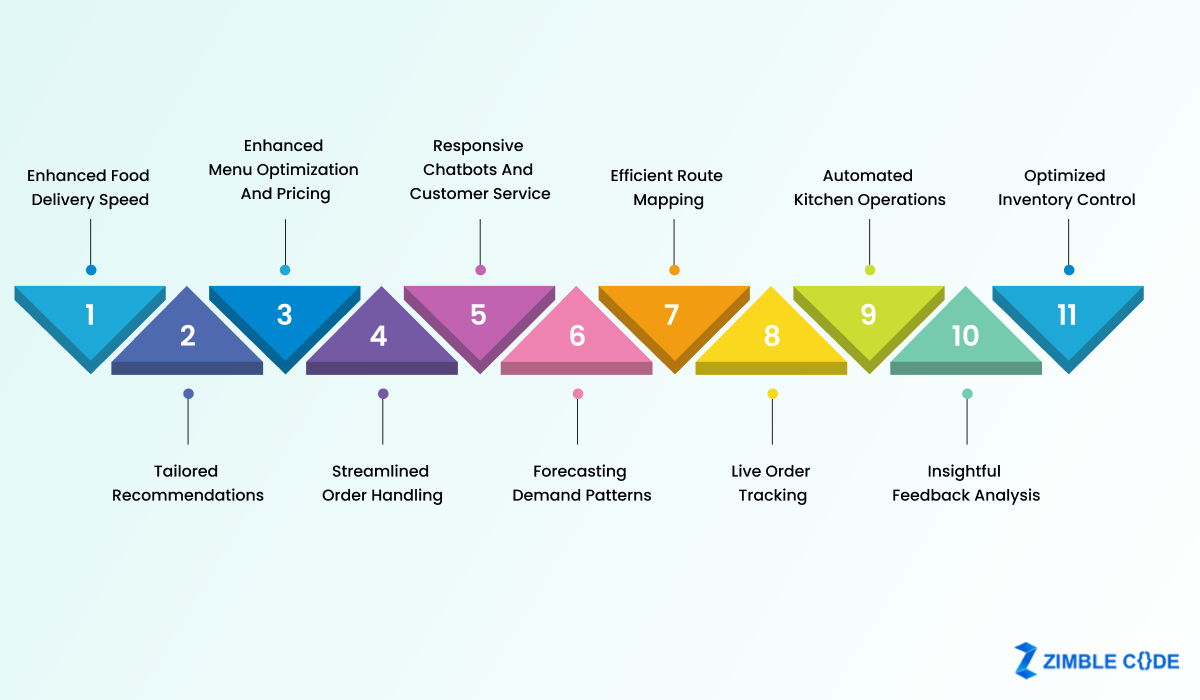
1. Enhanced Food Delivery Speed:
AI facilitates expeditious and effective food delivery strategizing by applying diverse AI algorithms. By estimating the average time required for various routes, this technology aids companies in promptly supplying customers with fresh food items, thereby optimizing the delivery process.
2. Tailored Recommendations:
AI algorithms meticulously analyze customer details, order histories, preferences, and browsing habits to offer personally tailored food suggestions. This not only enriches the user journey but also amplifies the likelihood of patrons discovering novel dishes that resonate with their tastes.
3. Enhanced Menu Optimization and Pricing:
By leveraging AI, eateries can fine-tune their menus and price points through insights derived from factors like demand trends, ingredient costs, and dish popularity. This strategic use of AI can potentially boost profitability and elevate the competitiveness of offerings.
4. Streamlined Order Handling:
AI-fueled order management systems autonomously route orders to the most fitting restaurants or delivery partners. This smoothens the process, reducing the scope for errors and hiccups. It also aids in identifying ingredients that might trigger allergies or dietary constraints, thus upholding the well-being and safety of patrons.
5. Responsive Chatbots and Customer Service:
AI-driven chatbots proficiently address customer queries, facilitate orders, and provide instantaneous support. This revamps the customer service landscape, ensuring rapid responses and frictionless order placements.
6. Forecasting Demand Patterns:
AI algorithms scrutinize historical data, weather conditions, events, and assorted variables to predict food demand accurately. This aids restaurants and delivery platforms to gear up for order spikes and manage their stock adeptly.
7. Efficient Route Mapping:
AI-powered route optimization algorithms guide delivery personnel in selecting the most efficient routes to their destinations. Businesses seek on-demand food delivery app development to condense delivery durations, enhance efficiency, and trim operational expenses.
8. Live Order Tracking:
AI empowers customers to track their orders in real-time using GPS and map integration. This element fosters transparency and heightens the overall customer encounter. It can also spot and prevent deceitful activities by dissecting transaction data and recognizing patterns.
9. Automated Kitchen Operations:
AI-driven kitchen automation systems contribute to refining cooking processes, ensuring consistent quality, and curbing preparation times. This, in turn, accelerates order fulfillment.
10. Insightful Feedback Analysis:
AI algorithms dissect customer feedback and reviews to uncover patterns and areas necessitating enhancement. Further, the AI-fueled language translation tools surmount language barriers. This permits customers to explore menus and place orders in their preferred languages.
11. Optimized Inventory Control:
AI is instrumental in optimizing inventory management for restaurants by forecasting demand. This translates into reduced food wastage and costs. Additionally, some advanced systems can craft fresh recipes based on specified criteria. Thus, it holds the potential to usher in inventive menu choices.
In essence, AI is elevating the online food delivery sector by instilling greater efficiency, customer focus, and technological sophistication. This empowers businesses to furnish superior services, streamline operations, and cater bespoke experiences to their clientele.
Wrapping Up!
The landscape of food delivery remains highly fluid, characterized by ever-shifting trends. To yield optimal results, businesses must remain consistently poised for forthcoming quarters. Consequently, such preparation demands an exceptional level of precision— a trait that proves challenging to achieve through human interpretation. Thus, you can hire a trusted app development company in Australia like Zimble Code, leading to satisfied customers who receive timely and efficient service.
Frequently Asked Questions (FAQs)
Q1. Does AI integration exclusively provide advantages to extensive food delivery platforms?
No, AI integration can bring advantages to businesses of all scales within the food delivery sector. It furnishes tools that enhance different facets of the customer experience and operational effectiveness.
Q2. Are there obstacles to integrating AI in the online food industry?
Indeed, there are challenges. It includes data privacy, initial implementation expenses, skilled personnel requirements, and potential opposition to departing from conventional procedures.
Q3. How does AI enhance delivery efficiency?
AI-driven route optimization algorithms guide delivery drivers in locating the most optimal paths. It thereby cuts delivery duration operational expenditures and ultimately boosts overall efficiency.

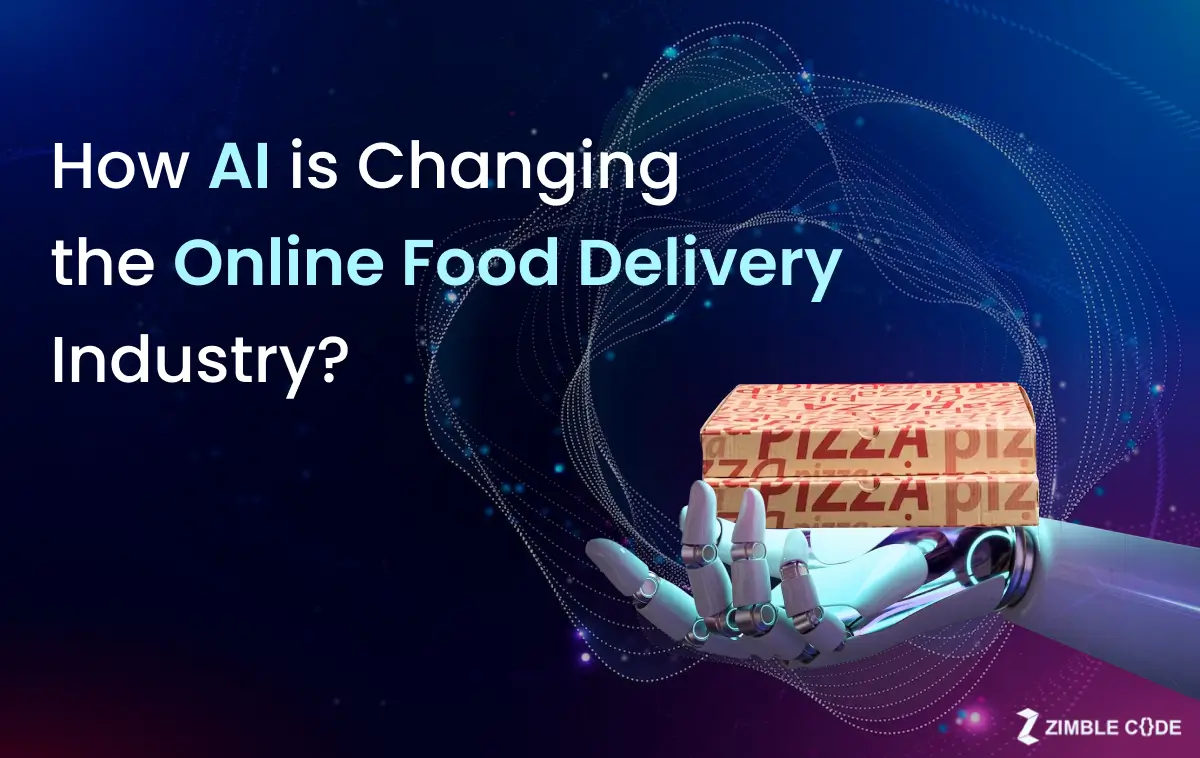

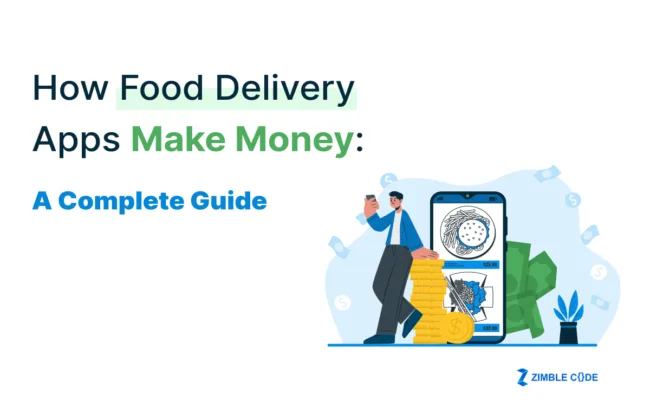
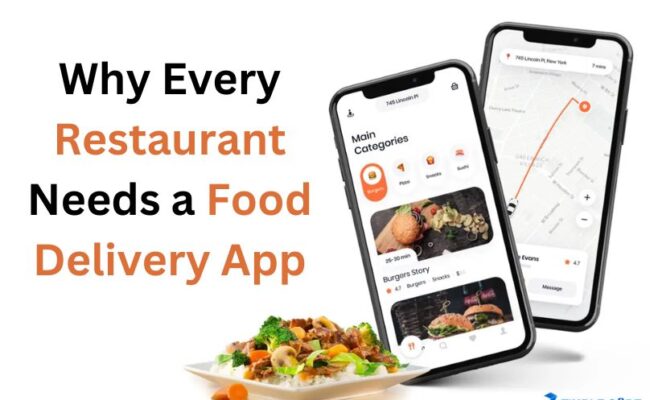
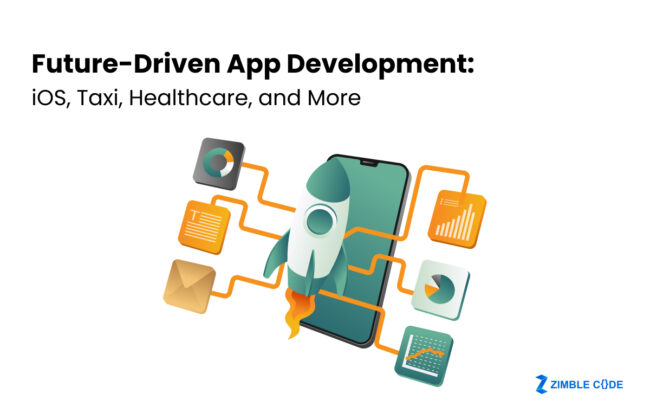
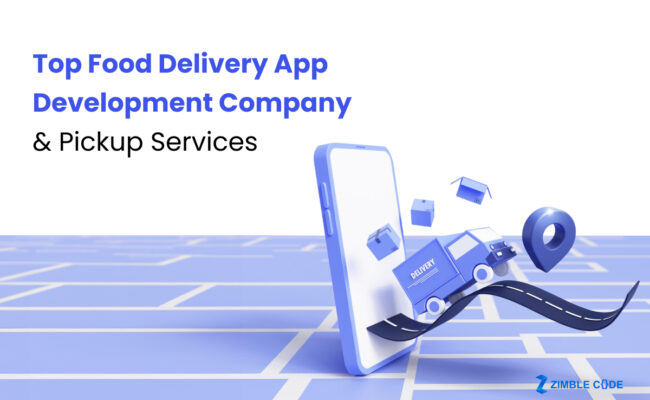
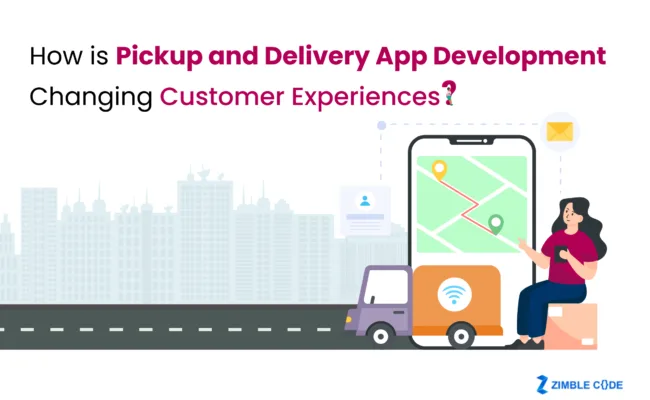

Leave A Comment